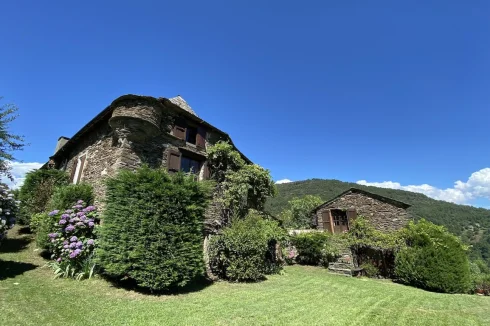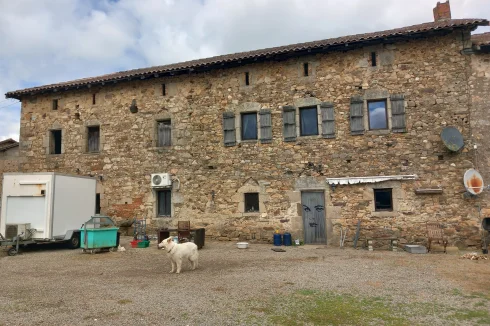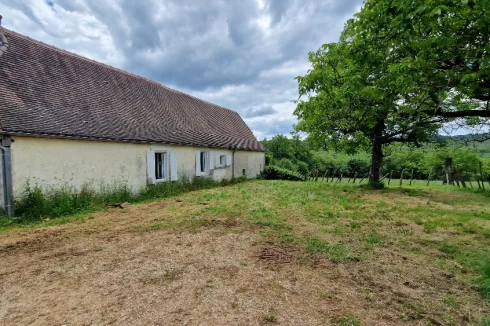Seller Hid Dry Rot from Buyer
Tuesday 05 May 2020
A salutary warning to buyers of French property located in an area where the statutory parasitic survey does not apply.
In a case recently heard in the French court of appeal, a couple were owners of an apartment on the first floor of a block of flats located in the city of Rennes, which they had purchased in March 2000.
In June 2009, the couple commissioned a builder to undertake complete renovation of their bathroom, costing over €10,000. The work was substantial, comprising removal and renewal of the bathroom fixtures and walls, floor and ceiling, carpentry, plumbing and electricity.
Less than a year later they discovered an infestation of wood-eating larvae and fungi in the bathroom and kitchen. There is no indication from the court report that the cause of the problem was the renovation work to the bathroom that had been recently carried out.
The couple called in a wood treatment company who pointed out in their estimate that structural timbers on the gable end wall of the building were in a degraded state and advised the owners to obtain specialist advice to determine if reinforcement of the structure was necessary.
Remedial work to structural timbers, located in the communal area of the building, was not included in the work carried out by the company, which was restricted mainly to spraying the walls and floors of the bathroom and kitchen with a fungicidal and insecticidal product, costing €1,800.
Following the death of the husband, in January 2013 the property was inherited by the son, with the surviving spouse retaining life interest (usufruit) of the property. The son also moved into the property.
In June 2013, the son and his mother agreed terms for the of sale of the apartment. Completion duly took place in September 2013.
As part of the sale process, the usual statutory surveys (diagnostics immobilier) were provided by the sellers, but no parasitic survey was carried out as the property was not located in an area where it was obligatory. Such surveys are restricted to those areas prone to termite infestation, not dry rot.
The sellers declared in the deed of sale that “no construction or renovation has been carried out in the last ten years, nor that any element constituting work or equipment inseparable from work….was carried out on the building over this period.”
The buyer also declared that during their visit to the property they saw no evidence of dry rot.
Subsequently, the buyer engaged a company to examine the gable wall of the building when the presence of dry rot was established in the structural beams, including floor beams to the apartment.
The court concluded that even though the plaster on the beams was in poor condition and apparent at the time of the sale, they were not sufficient to alert the attention of a layman (the buyer) to the possibility of wood infestation.
In addition, although the bathroom had been completely renovated, the sellers had declared in the deed of sale that no renovation had been carried out in the past ten years.
They also considered that the presence of an infestation in 2010, revealed three years before the sale by the wood treatment company, was hidden from the purchaser.
By making false statements on the absence of renovation of the property and by refraining from communicating essential information on the condition of the structural timbers revealed by the treatment company, the court considered that the sellers had intentionally concealed information which they knew would be a determining factor for the purchaser.
The court ruled that the sale be annulled on the grounds of fraud by the sellers.
Comment
It is worthy of note here that the proceedings did not turn on the question of whether there had been a hidden (latent) defect (vice caché), as occurs with many similar cases, but on whether the sellers had acted in a fraudulent manner. A latent defect is one with which an owner is not necessarily aware, whereas fraud (dol) implies they knew about the problem and hide it from the buyer.
You can read more about the law on hidden defects at What is the Guarantee of ‘Vices Cachés’?
The French government have resisted the inclusion of a dry rot survey in the obligatory diagnostics immobilier, stating that such a survey would be difficult as there are multiple causes, most of which are linked to the way the occupants live in the property and level of repairs and maintenance carried out.
Nevertheless, owners of a property with dry rot are required to declare it to their mairie, and sellers are legally bound to declare all important information to a buyer.
Thank you for showing an interest in our News section.
Our News section is no longer being published although our catalogue of articles remains in place.
If you found our News useful, please have a look at France Insider, our subscription based News service with in-depth analysis, or our authoritative Guides to France.
If you require advice and assistance with the purchase of French property and moving to France, then take a look at the France Insider Property Clinic.





